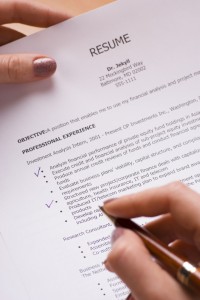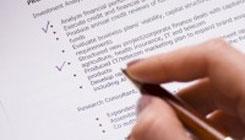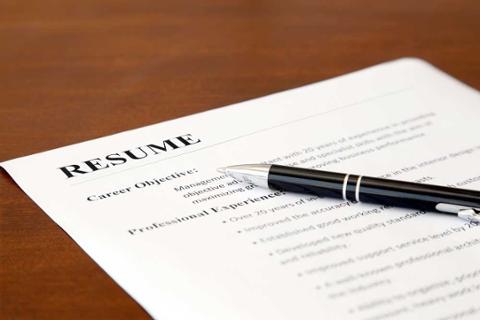By Jennifer Goforth Gregory You know the problem: Everyone who reviews your resume — whether they’re a recruiter, an HR staffer or the hiring manager — spends mere seconds on it and wants to decide just one thing: Is this person worth calling in for an interview? To make them think Yes, every part of your resume has to be well thought out and carefully constructed.

In tech, one of your resume’s most important sections is your list of technical skills. Here’s how to approach making it so effective that reviewers will decide right then to pay more attention to your resume than others'.
Be Selective
One of the most common mistakes tech professionals make is to include a laundry list of skills here. Iman Jalali, president of Illinois-based TrainSignal, a global IT training platform for IT professionals, recommends including only those where you have an intermediate to expert level of skill. “Be sure to put any certifications on your resume as well,” he says, “since that’s a good way of validating your skill level.” Including a section called “Technical Skills Highlights” is a good way to indicate that you have additional skills that may not be pertinent to this particular job, but can still be impressive, adds Jonathan Feldman, CIO of the City of Ashville, N.C. At the same time, he cautions job seekers against listing skills that are no longer commonly used. “Some people think that listing outdated skills makes them look seasoned, but it typically makes the job seeker appear that they don’t understand the job and that they’re not relevant."
Customize
Never send the same resume for every job application. Instead, customize your technical skills for each position. Especially important: Include technology that the company uses in its environment. “If you’re applying to a Fortune 500 company, a lot of the time, you can find out what type of technology they’re using, then craft your resume to fit the platforms at the company,” Jalali says. “When we see a resume where it’s obvious that the job applicant crafted it just for us, they almost always get a first-round interview or a phone screening.” Jalali also recommends customizing your job responsibility section from previous positions to include technical skills and how you used them. “Instead of just listing that you know Microsoft Exchange, tell me that you implemented 1,000 users and set up a backup-and-recovery system. Make it about how you helped the company, such as saving money or increasing sales.”
Write for Both Audiences
When compiling your technical skills, remember that very often the first person to see your resume will be a Human Resources manager or non-technical hiring manager. Feldman recommends describing the skill and then putting the technical information in parentheses, like this:
Cisco Voice and Phone Skills (IP PBX, IP telephony)
Using this format helps the non-technical reviewers realize that even though you’ve not listed the exact technology used, you have enough skills to meet the job requirements. Finally, always be clear: “Make sure that clarity trumps completeness on your resume,” Feldman says.” If your entire resume is three- or four-letter acronyms, then you need to continue to revise it.” Jennifer Gregory specializes in writing about technology and small business. In addition to having a Masters degree in technical writing, she's worked as a technical writer for both small and large software companies, including IBM. She also served as a project manager and user-interface designer for both IT systems and software projects.



